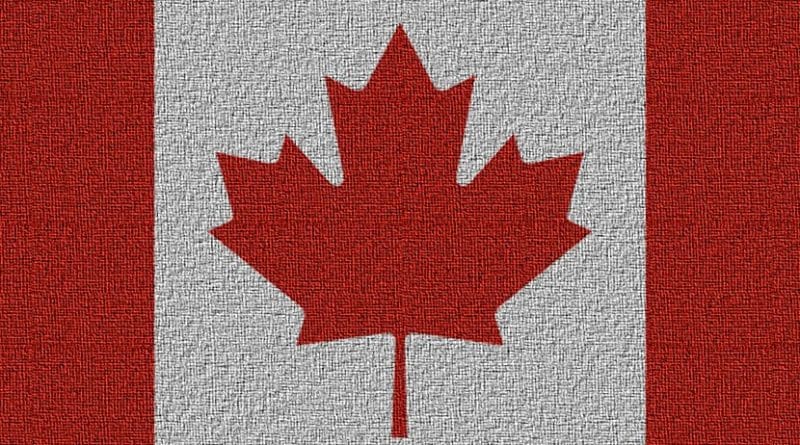Canada And Foreign Aid: A Distorted Image – Analysis
Every five years or so, countries that give foreign aid critique each other’s performance. It is a gentle kind of review, done under the auspices of the Organization for Economic Cooperation and Development (OECD).
The report released in June 2012 underlined what it called “a lack of transparency around the means and ends of [Canada’s] aid programmes.” This lack of transparency, says the peer reviewed study, constrains “discussions with key stakeholders, including parliament.”
Ever so diplomatically, the study tore away at the façade of Canada’s entire foreign policy, which is largely misunderstood by Canadians. It is a façade that new signals from the Harper government over Canada’s distribution of foreign aid will not assuage the concerns of the Canadian development community over the future of funding international projects. Julian Fantino, Canada’s minister of international cooperation, has, indeed, been calling for an increase in support through the Canadian International Development Agency (CIDA) for projects directly tied to Canadian mining companies working abroad.
The façade suggests that Canada is a respected, robust player in the world, whereas Canada’s influence has been in steady decline. The reasons for that decline are many, including the rise of other powers, but one explanation is entirely Canadian – the yawning gap between Canada’s ambitions and capabilities. This country has a self-image of an international do-gooder; the reality is Canada does not pay its way.
The gap between pretence and reality is everywhere apparent: in foreign aid, defense, and foreign policy. Never has the world meant more to Canada; never has Canada meant less to the world.
Yet Canadians live in a fantasy world about themselves, nicely captured by a certain tourism slogan from the 1990s. “The world needs more Canada,” declared television spots and newspaper ads from 1995, pitching the U.S., Latin America, and Europe on the idea of Canada as a land of tranquility and safety. Maybe the world does, but it has not been getting it, because Canada has shrunk its commitments to the world. When those commitments wither, what replaces them is that beguiling yet intensely irritating Canadian attitude of moral superiority, especially but not exclusively directed toward the United States.
Put another way: If indeed Canadians want a somewhat distinctive foreign policy vis-à-vis Washington, then they have to pay for it. Having failed to make that investment, they fill the vacuum with moral superiority that acts as a false substitute for having real assets, tangible commitments and the ability to make real choices.
This kind of argument is often made about defense spending. Years of underinvestment have rendered Canada incapable of a sustained capacity to fight or keep the peace. Those who want Canada to join more closely in U.S.-led military actions, like those who prefer Canada to do more peacekeeping, can relax. Canada can do neither for a sustained period.
Canada’s incapability is also revealed in foreign aid. Of the 22 countries that give foreign aid, Canada ranked 14th in 2011 in aid as a share of gross national product (GNP). The dollar volume of its aid was 11th – this for a country that brags about being a G8 member and a light unto the developing nations.
Worse, while aid kept falling in the first part of the 2000s and stayed modest in the second part, Canada’s pretensions remained. So Ottawa spread aid more thinly around more countries than any other donor country, especially since its 2009 major reshuffle in its aid program. Canadians loved having their little maple leaves spread all over the world.
Meanwhile, they spent a higher share of their aid on central administration in Ottawa than most other donor countries, according to the study of their aid program.
Between 2004 and 2009 the aid budget kept rising – by 8 percent per year. But Canada was sending the new funds into some African countries, while spreading the rest of the budget almost as widely as ever.
The real – that is, after inflation – budget of the Department of Foreign Affairs is about 25 percent less than two decades ago. Missions abroad have been closed or trimmed. The bulk of foreign service officers – the ones between secretaries and senior executives – nearly went on strike a decade ago, so niggardly had been their salary increases. Things have not significantly improved since then. Bright people in their 30s and 40s had been peeling away from the department because salaries were so much better in the private sector.
The majority of Canada’s politicians are profoundly local, even parochial, in their upbringing and intellectual horizons. They have sensed that domestic issues get them elected, so they fall all over themselves to place more manna on the altar of programs such as almighty Medicare. The Prime Minister, Stephan Harper, who has presided over this widening capability gap, would never pitch himself as “citizen of the world.’ He much prefers to be perceived as “community man,” local to the core.
The foreign policy review by the OECD, if honest, must underscore that the world does not need more Canada, if Canada does not reckon that it needs more of the world. And for that, Canadians have to pay, rather than comfort themselves with moral superiority.
This article appeared at Diplomatic Courier and is reprinted with permission.

